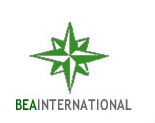
Balancing Progress and Challenges: Sub-Saharan Africa's Journey to Economic Stability Amid Adversities
Africa is blessed with abundant natural resources and yet poverty, hunger, food insecurity continuously challenging political stability. IMF economic outlook stipulates hope. Sub-Saharan Africa is navigating a complex economic landscape marked by both progress and persistent macroeconomic vulnerabilities. Countries in the region are trying to implement difficult and much-needed reforms to restore macroeconomic stability in the aftermath of repeated negative shocks and the ensuing need for support. Overall, internal and external imbalances have started to narrow, mainly reflecting policy adjustments, but the picture is varied; about one-half of countries still exhibit high imbalances. Monetary tightening has curbed inflation, which is within target in about half of the region. Significant fiscal consolidation has stabilized the average debt-to-GDP ratio, albeit at a high level.
External positions have strengthened, with sovereign spreads narrowing and more countries returning to Eurobond markets. However, challenges persist. Inflation remains in double digits in nearly one-third of countries. Debt service capacity is low, and rising debt service burdens are eroding the resources available for development spending. Foreign exchange reserve buffers are often insufficient, and concerns about overvaluation and competitiveness persist. In their efforts to reduce these imbalances, policymakers face three main hurdles. First, regional growth, at a projected 3.6 percent in 2024, is generally subdued and uneven, although it is expected to recover modestly next year. Resource-intensive countries continue to grow at about half the rate of the rest of the region, with oil exporters struggling the most. Factors dampening growth include conflict, insecurity, drought, and electricity shortages. Second, both domestic and external financing conditions continue to be tight, with many countries unable to access or afford financing. Third, complex underlying pressures linked to high poverty, lack of inclusion and job opportunities, as well as weak governance, compounded by rapid increases in the cost of living and the short-term effects of macroeconomic adjustment, are causing significant hardships in many countries. The resulting social frustration and political pressures make it increasingly challenging to implement reforms. Governments face a difficult balancing act in reducing macroeconomic vulnerabilities while also addressing development needs and ensuring that reforms are socially and politically acceptable. Countries with high imbalances may have to implement large and frontloaded adjustments given tight financing constraints. Nevertheless, there are many countries with more moderate imbalances that may be able to pursue smaller and more gradual policy adjustments.